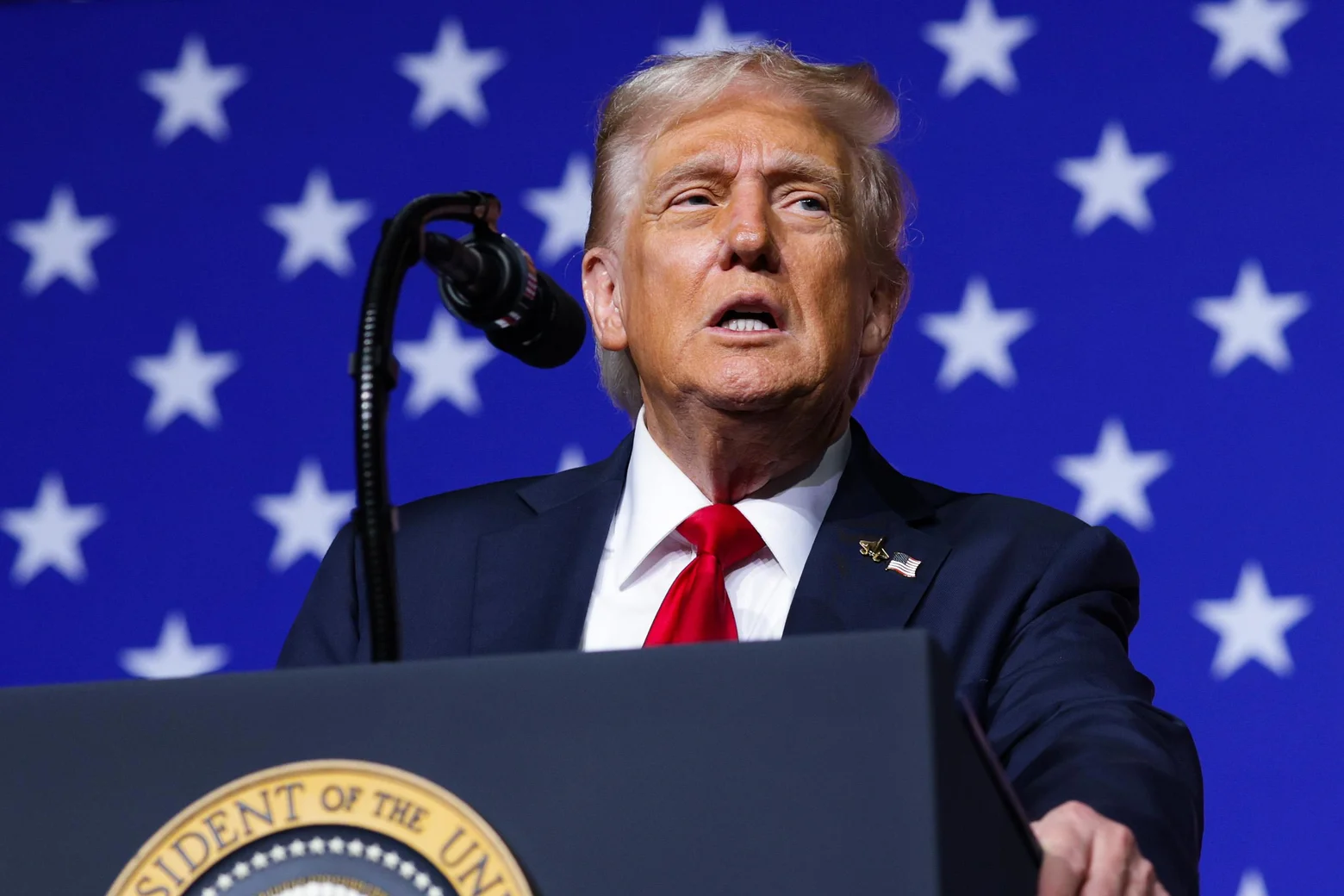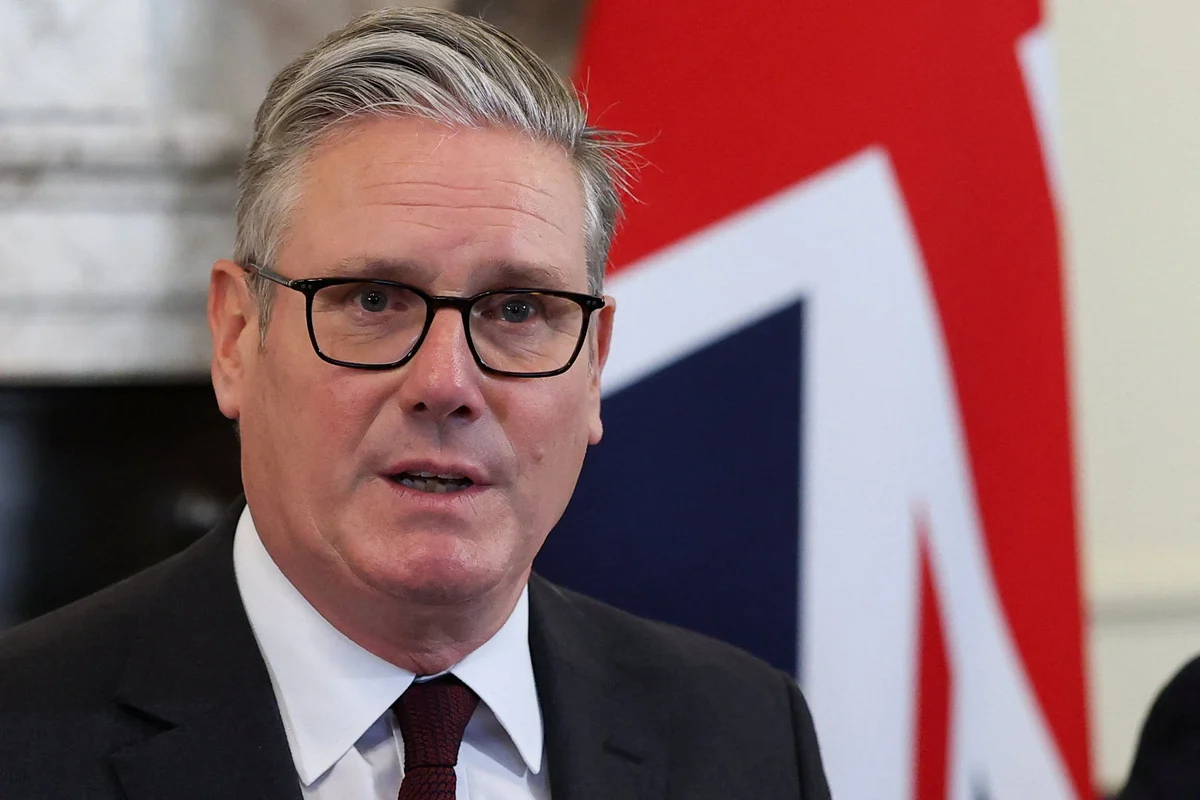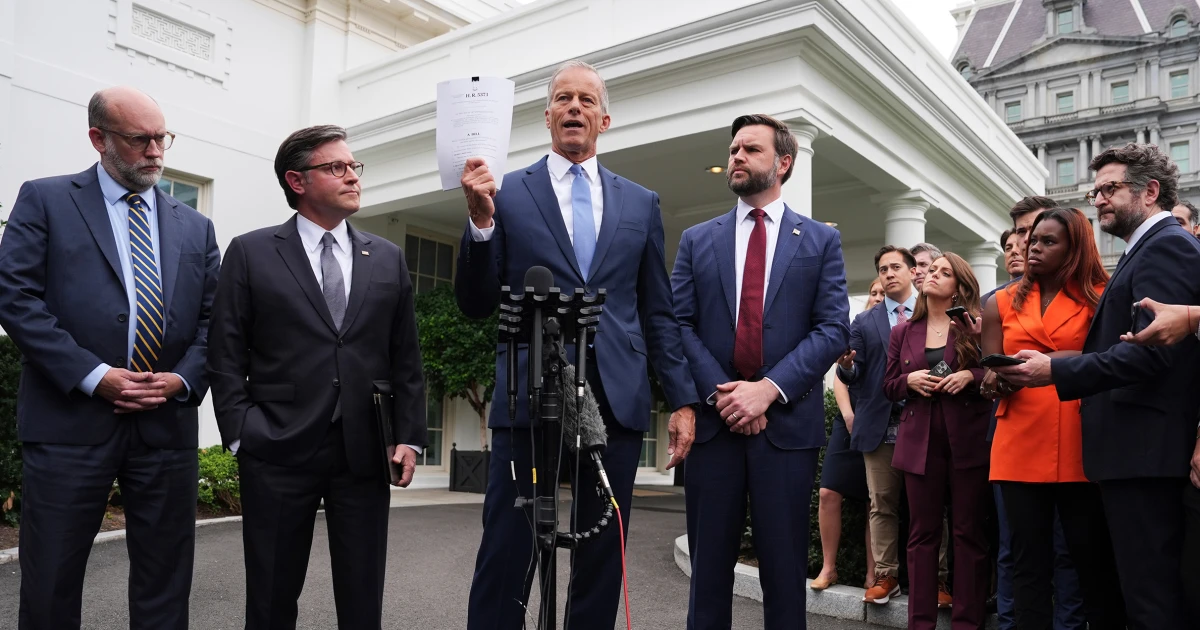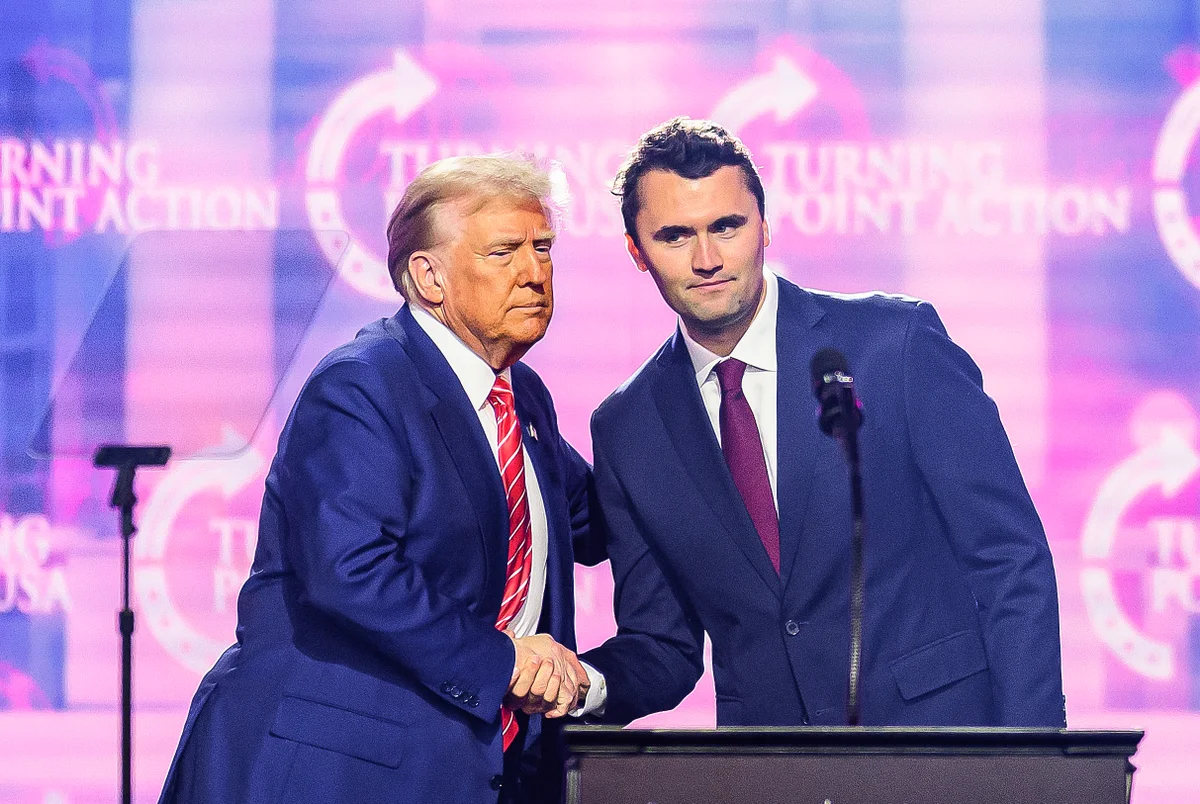
Sign up for the Slatest to get the most insightful analysis, criticism, and advice out there, delivered to your inbox daily.
Before a gathering of the nation’s highest-ranking military officers, President Donald Trump unloaded what may be the most repellent, unhinged, and—in the few moments when he got to his point—frightening speeches by any American president ever.
In a 75-minute ramble, much of it improvised on the familiar themes of his campaign rallies, the commander in chief skewered Joe Biden (“this guy who had no clue”), even Biden’s autopen signature (“I love my signature, everybody loves my signature,” he boasted), the “sleazebags” in the “fake media,” George Soros, the Democratic Party (“they don’t treat you with respect, they’re Democrats, they never do”), several “stupid” Democratic mayors—and touted himself as the savior of the military and the nation (“I rebuilt the military. … I have settled so many wars. … I know more about deals than anybody”).
One can imagine what was going through the minds of the hundreds of generals and admirals, who had once saluted Biden and Obama as their commanders, who had come up through the ranks with an apolitical ethos, and who must have been at that moment wondering what kinds of orders they might have to follow—or consider not following—from this crude man who now has the attack plans and nuclear codes at his side.
Beneath the incoherent swagger and insults, Trump sent a clear message about the sorts of orders he’d soon be handing down, and that couldn’t have been reassuring. The military’s main task in the near future, he said, would be to defeat “the enemy from within”—the criminals, terrorists, and immigrants whom he claimed are ravaging American cities (even though, in most of those cities, crime rates are falling).
This is an “invasion from within,” he said several times, “no different from a foreign army.” And dealing with this enemy will become one of the military’s top priorities.
The National Guard, he claimed, had transformed the District of Columbia, which he said had been more dangerous than any place in Afghanistan (this to officers who had fought in Afghanistan), into a crimeless haven. Chicago and Portland come next. And, oh, he said, “we haven’t even started yet.” With his executive order to create a “quick reaction force” to stop civil disorder, our cities can now be used as a military “training ground.”
And on that training ground, he proclaimed, the gloves should come off. During the Biden administration, he said, street protesters would spit at police, and National Guard members just stood there and took it. No longer. His slogan: “They spit, we hit—is that OK?” The generals and admirals sat silent.
Trump’s monologue followed a speech by Secretary of Defense Pete Hegseth, who had ordered the generals and admirals to gather at the Marine base in Virginia from their stations all over the world—at a cost of millions of dollars for transportation—to hear what some had billed as a pep talk about the Pentagon’s new embrace of “warrior ethos.”
But Hegseth’s remarks too held a darker theme. Along with his usual tirades against various liberal shibboleths (“no more identity months, DEI offices, dudes in dresses, no more climate-change worship—we are done with that shit!”), he also called for an end to “frivolous complaints … no more smearing reputations … no more legal limbo” and an “overhaul” of the inspectors general who investigate misconduct. Basic training should be “scary, tough, and disciplined,” with sergeants allowed to “instill healthy fear” and “put their hands on recruits.”
Hegseth first came to Trump’s attention as a Fox News anchor who stood up for three officers prosecuted for particularly heinous war crimes in Afghanistan. (Trump later pardoned the individuals and, for a while, had them join his campaign tour.) As defense secretary, Hegseth has fired a lot of military lawyers; he seems to view the phrase war crimes as an oxymoron. In his speech Tuesday morning to the top generals and admirals, he was saying the gloves were off—for training, for military operations, for everything.
“Out with the Chiarelli, the McKenzies, the Milleys, and in with the Stockdales, the Schwarzkopfs, and the Pattons,” Hegseth practically screamed—insulting former Army Vice Chief of Staff Gen. Peter Chiarelli, ex–Central Command Chief Marine Gen. Kenneth McKenzie, and ex–Joint Chiefs of Staff Chairman Gen. Mark Milley. All of them had pursued ethical standards in their commands—and, not coincidentally, they have all since criticized Trump.
How many generals and admirals in the audience were appalled that this talk show host and former major in the National Guard had the temerity to sneer at experienced combat commanders?
A few defense secretaries have aroused the ire of senior military officers—Robert McNamara for subjecting their favorite weapons systems to statistical analysis, Robert Gates (in the eyes of some) for killing a lot of weapons and firing a few generals (for good, or at least explicitly stated, cause). But none of them ever derided a chief or a commander in public; none of them ever presumed for a second that they had the right, much less the experience, to lecture them on what it means to be a “warrior.”
In Trump’s speech, besides his politicization of every issue, his open contempt for previous commanders in chief, his clear hatred for the free press, even his subtly repeated claim that he really won the 2020 election (he referred to himself as “the 45th, 46th, and 47th president”), he revealed a shallow understanding of the military itself. He claimed that the U.S. Navy was 20 years ahead of any enemy in submarine technology (in fact, the Russians are nearly our match, and the Chinese are behind, but by not nearly that much). He far exaggerated the capabilities of his “Golden Dome” defense. He said that bullets are better than missiles and that he was thinking about bringing back the battleship, musing that he loved watching Victory at Sea, an early-’50s TV documentary about naval battles in World War II. (I would have liked to see some reaction shots of Navy officers contemplating how easily a single drone would take out a century-old warhorse of the ocean.)
He claimed that military personnel voted for him in the elections, went on for a while about how great firefighters are (“I got 95 percent of their vote”), insisted that street protesters (“animals”) often shot guns at firefighters while they were putting out flames, asserted that Biden never gave the armed forces a pay hike (in fact, he did almost every year of his presidency), and declared that military recruitment had soared to record levels since his election (in fact, recruitment started going up in the last year of Biden’s presidency).
“A year ago, we were a dead country,” Trump said near the conclusion of his harangue. “We were dead. The country was going to hell. … We had no borders, we had no weapons, we gave everything to Ukraine—we had nothing.”
Now, he said, “America is respected again as a country”—though he couldn’t help but add, “We were not respected with Biden. … Every day, the guy was falling down stairs.” He then digressed about how important it is that presidents not fall downstairs, that the footage of falling can set their legacy, that he’s always careful going downstairs, that the only thing he admired about Barack Obama—in all other ways “a lousy president”—was the way he could “bop down those stairs like I’ve never seen.”
Those poor generals and admirals. It must have been the most unsettling morning the majority of them had experienced since coming under fire in real battle. They have been taught since their time as cadets to stay out of politics. The law, which they’ve sworn to uphold, prohibits them from operating in cities except under the most dire conditions. And now here were the president and the secretary of defense, ordering them to become politicized and to patrol and aim fire at their fellow citizens.
Some of them must be dreading—as we all need to start dreading and doing everything to stop—the days and nights that lie ahead.



